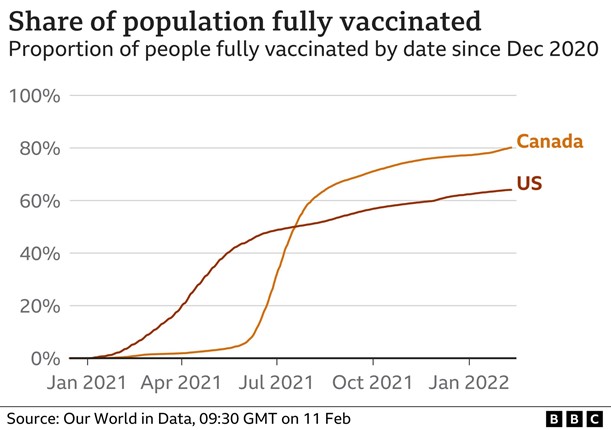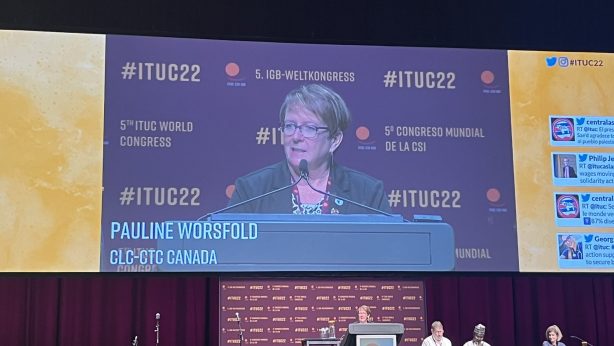Public health care is why Canada’s COVID-19 death rate is much lower than America’s
The BBC noted that Canada has fared far better than the U.S. during the pandemic, despite having similar income disparities, territorial divides, rates of obesity and hypertension as our southern neighbour.
Experts say that the reason for the dramatic difference is simple: Canada’s universal and publicly-funded health care system.
The total death toll of the pandemic in the U.S. stands at about 919,000 people, compared to 35,500 deaths in Canada, according to Johns Hopkins University.
Bernd Debusman Jr., a BBC reporter based in Washington, says there is a staggering difference in how many more Americans have died because of COVID-19 compared to Canadians.
The availability of universal health insurance is the “simplest” explanation for Canada’s lower infections and deaths, said Ross Upshur, a professor of public health at the University of Toronto. “Most Canadians would not swap the health system we have, with all its faults, for the U.S. system,” he said.
Even with infection rates falling across the country, as of February 12 new cases in the U.S. stood at about 543 per one million people, compared with 258 per one million people in Canada, according to Our World in Data, a collaboration between Oxford University and an educational charity.
“That means that people, regardless of their socioeconomic status, have access to health care,” said Dr Donald Vinh, an infectious disease specialist at McGill University Health Centre in Montreal. “What makes that an important factor is that, regardless of where you are in your phase of illness, you will still be able to get health care.”
“In fact, the reproduction rate of the virus has been exactly the same,” said Canadian national Dr. Mark Cameron, associate professor in the department of population and quantitative health sciences at Case Western University in Ohio. “[But] Canada’s per capita case rate has generally been less than half that of the U.S.”
While the population of the U.S. is over 332.4 million, which is more than eight times Canada’s population of 38.2 million, the U.S.’s ratio of deaths per one million inhabitants still far surpasses Canada’s.
As of February 9, 80% of Canada’s population was fully immunized against COVID-19, along with another 5% that is partially vaccinated, meaning they had received at least one dose of a multi-dose vaccine.
In the U.S., only 64% of people are fully vaccinated and 12% partially vaccinated.
Canada got off to a slow start with vaccinations, but had caught up to the U.S. by mid July when exactly half of the population in each country was fully vaccinated. Canada’s vaccine take-up then surged ahead.

The data suggests that surge helped save lives. While a third (34%) of the total U.S. death toll has come in the seven months since, only about a quarter (26%) of Canada’s COVID-19 deaths have.
“As Canadians, we are grateful to those who have built our wonderful public health care system, and we commit to ensure that it is improved and strengthened,” said Pauline Worsfold, RN, chairperson of the Canadian Health Coalition.
Public health officials warn that while most of Canada’s provinces are seeing cases and deaths fall, it may be too early to relax all the country’s COVID-19-induced public health measures.
Dr. Vinh said that a “strategic and staggered process with a constant surveillance of metrics” may be necessary to give provincial and federal mandates the flexibility to respond to changes in the pandemic.
“People do get fed up and want to will it away,” Professor Upshur said. “But you can’t will it away – or honk it away”.


